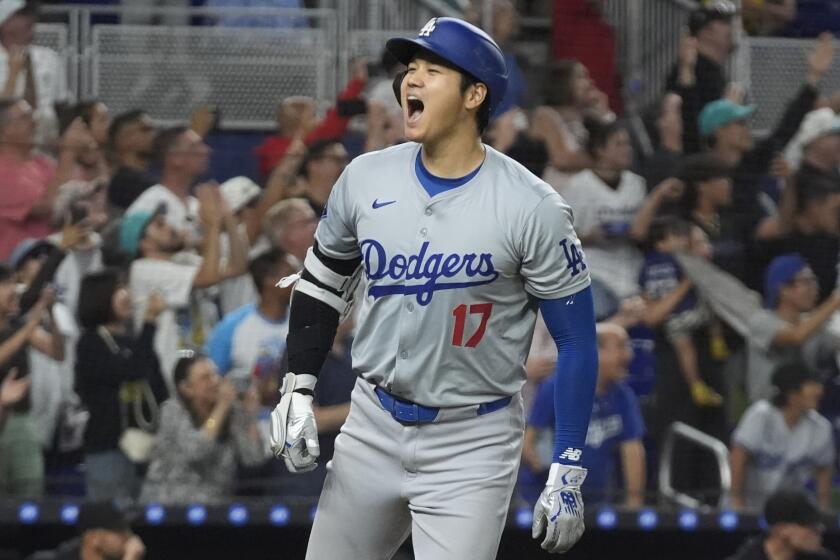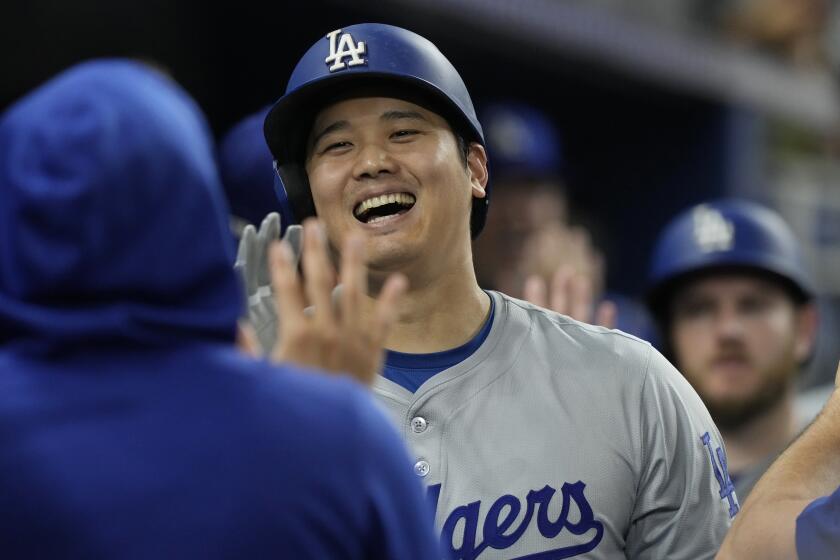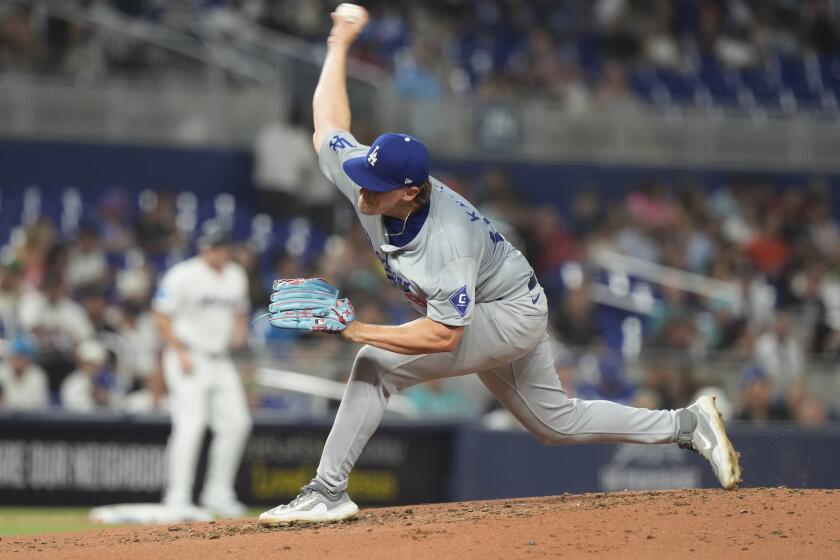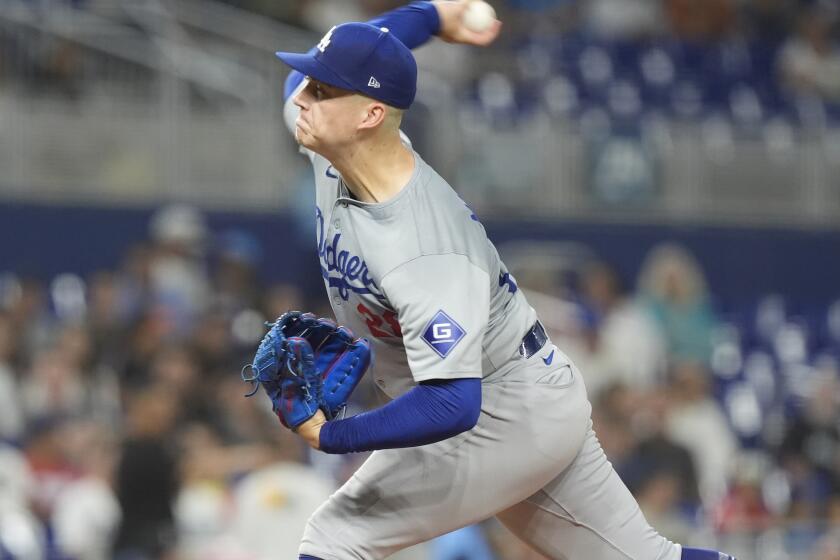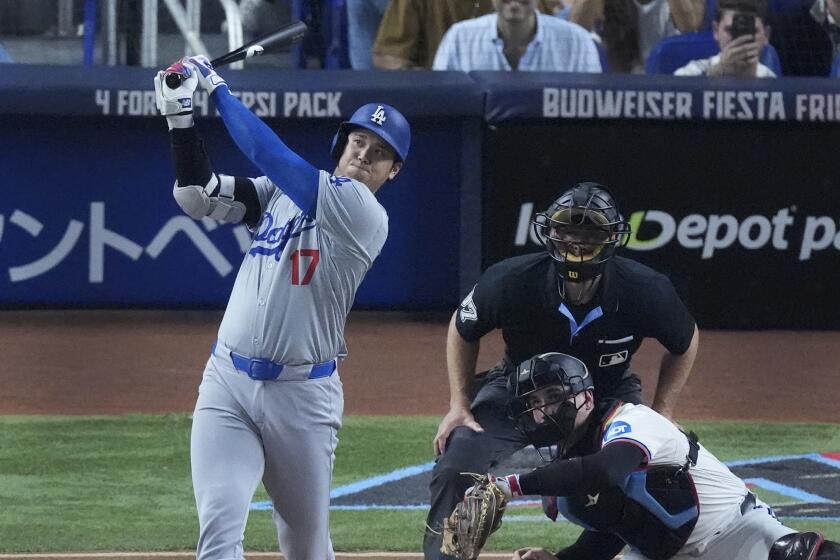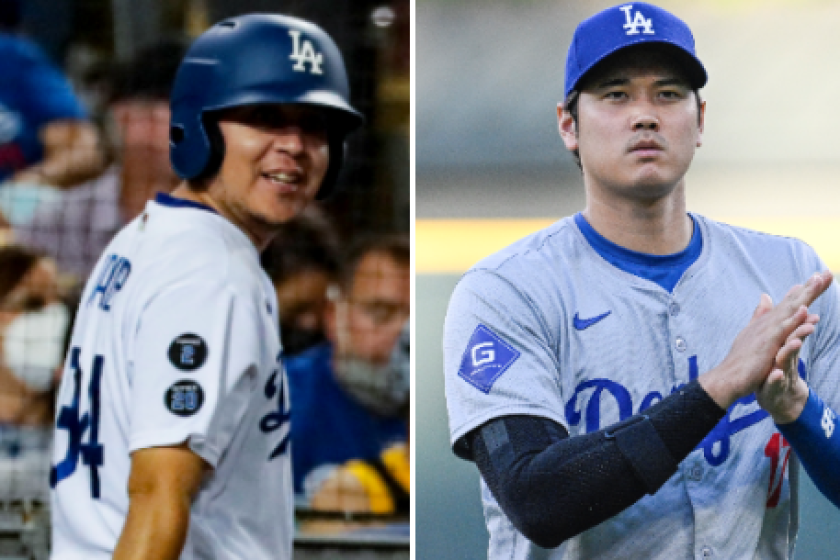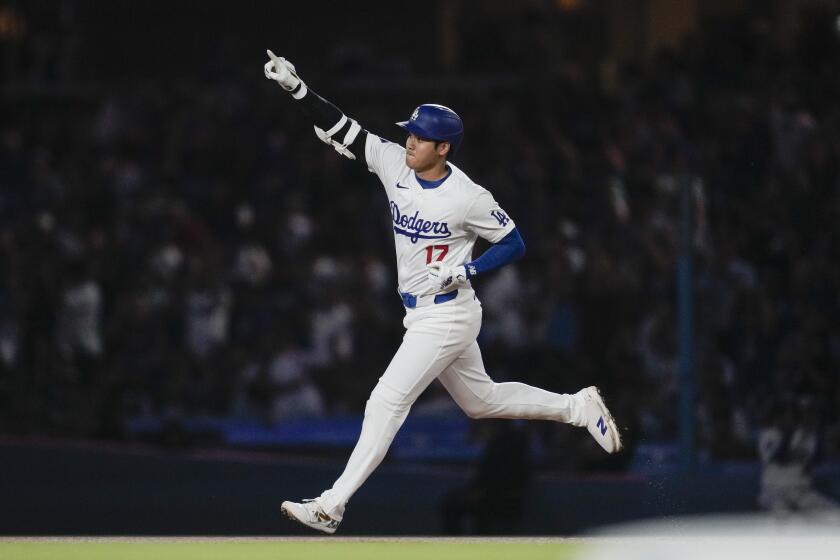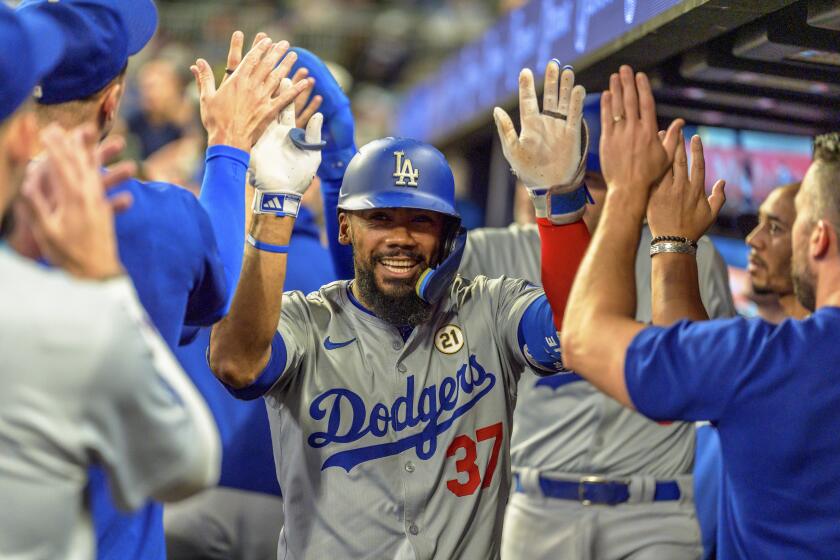Frank McCourt says in divorce trial that Jamie McCourt was wary of Dodgers purchase
The way Frank McCourt tells it, Jamie McCourt expressed her financial philosophy in the same words time and time again during a marriage that lasted nearly 30 years: “You can make a billion. You can lose a billion. I don’t care. I just want my own nest egg.”
Frank was the only witness on the fourth day of the McCourts’ divorce trial, this time under questioning from his own attorney, Steve Susman. Jamie is expected to testify in Los Angeles Superior Court on Friday, after which the trial is scheduled to recess until Sept. 20.
Jamie McCourt alleges that she and Frank are co-owners of the Dodgers, a contention her estranged husband repeatedly challenged from the witness stand. Frank has asked the court to declare him the team’s sole owner.
“Her claim that she owned the Dodgers is ridiculous,” Susman said outside court.
Frank said he was on the verge of bankruptcy in the late 1980s, teetering so close that creditors were “knocking on the door” of the family home and threatening to seize it.
“That sort of freaked Mrs. McCourt out,” Frank said. “I don’t blame her.”
At that point, Frank said, the couple began segregating business assets in Frank’s name and residential property in Jamie’s name. As the McCourts considered whether to buy the Dodgers, he said Jamie was adamant that she have no financial exposure. He said she reminded him that his only other business venture outside real estate — he and his investors lost $30 million on a dining and entertainment complex that opened in Baltimore in 1989 — had been “a disaster.”
At the core of their divorce case is a 2004 marital property agreement they signed that Frank says gives him sole ownership of the Dodgers and puts all of their houses under Jamie’s name.
Frank says the agreement was negotiated at Jamie’s insistence. He testified it was his understanding of California law that Jamie could not be a co-owner of the Dodgers and yet retain the homes should the Dodgers falter.
“There was no quid pro quo for me to ask for,” he said.
Jamie has claimed that she never fully read or understood the agreement. Frank testified that the attorney who drafted the agreement, Larry Silverstein, had reviewed its meaning with the McCourts “paragraph by paragraph” on the day they signed it.
The McCourts were publicly introduced together as the new owners of the Dodgers in 2004, and they were identified as such in an accompanying news release. Frank testified Thursday that this was nothing more than a public relations myth. He wanted to emphasize that family ownership had returned to the team after six years under the corporate stewardship of Fox Entertainment Group.
“That was really to hearken back to the O’Malley days,” Frank testified. “It was a nicer, more comfortable, warmer way to refer to ownership.”
Susman followed by showing numerous documents and team publications that he said debunked Jamie’s claim to co-ownership, including a 2008 Dodgers memo from Jamie to Frank in which she referred to “you as owner and me as president.”
Frank spoke expansively — so much so that Susman had to rein him in at times — and in great detail, in contrast to the nuanced, relatively minimal recollections he offered under cross-examination.
“He seems to have taken a lot of memory pills,” David Boies, an attorney for Jamie, said after court.
Under cross-examination Wednesday, Frank testified that he had “put off” for nine months the attorney who repeatedly wondered why he had not signed the document that would have made the Dodgers community property, as Jamie had asked.
On Thursday, he was asked on direct examination why he had not just said no right away.
“I love my wife,” he said. “It’s as simple as that. She was trying very hard to convince me to sign the documents. She had basically put the marriage on the line.”
The use of the present tense — “love” rather than “loved” — caused a buzz in the courtroom. After court, however, Susman indicated that the past tense would have been more appropriate.
“If he loved his wife now,” Susman said, “we probably wouldn’t be here.”
bill.shaikin@latimes.com
carla.hall@latimes.com
More to Read
Are you a true-blue fan?
Get our Dodgers Dugout newsletter for insights, news and much more.
You may occasionally receive promotional content from the Los Angeles Times.





